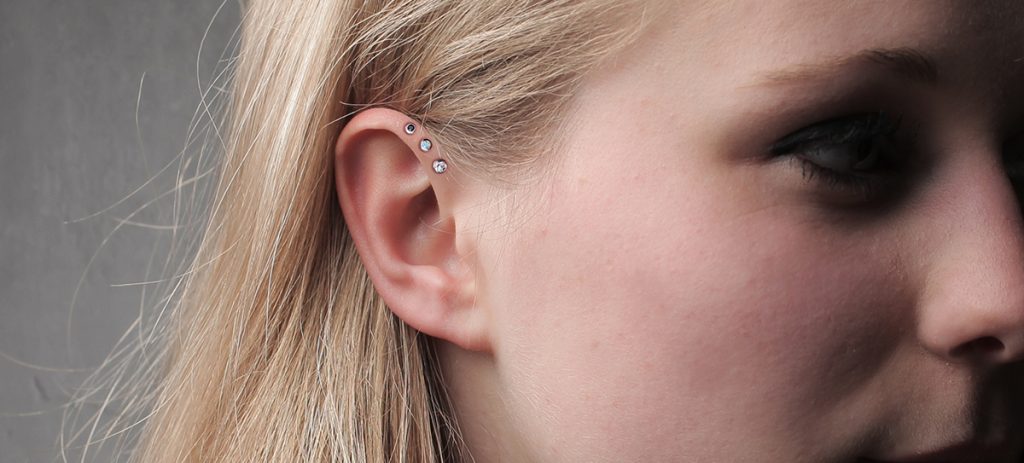
27
Nov
What is a helix piercing? Does helix piercings hurt?
0
0
0

Helix piercing has been around for a very long time. In fact, it was around before body piercing was popular. However, helix piercing has come a long way in how they pierce the helix, which is the upper portion of the ear, by the way. Your ear’s cartilage is what the helix is and it, at one time, used to be called a cartilage piercing.
While your ear has cartilage up at the top, it doesn’t have a lot of circulation. Because of this, it is very important to take really good care of your helix piercing. Be sure that you keep it clean so that you don’t risk infection.
There are three types of helix piercings which are double, triple, and forward. A double helix is two piercings that are facing forward or otherwise. It is located right across from the tragus. While this creates a beautiful look, it is a little painful times two. You will need to have a sharp needle put through your cartilage twice. You can get the double done at the same time. However, it is not recommended as if there is an infection it can double that infection and cause serious ear deformities. Because of this, many places recommend that you do one at a time and take the proper precautions to ensure they heal properly.
Triple Helix Piercings
Triple helix piercings are similar to double piercings but there are three. These, again, should be done at different times to ensure that you don’t have any issues in the healing process. These don’t have to be facing forward. A facing forward helix piercing is the part of the ear that is closest to the face. The helix piercing can be done anywhere on the helix which is the entire part of the cartilage. However, some people like to have it on the part that is closest to the face, while others would like it on the outer ridge.

Is a Helix piercing painful?
Well, if you don’t think shoving a needle through your cartilage would be painful then you would be wrong. While you don’t have a ton of nerve endings up there, it is still painful. If it gets infected it will remain painful. You need to follow the aftercare instructions very carefully. As mentioned there isn’t a lot of blood circulation in that area. Because of this, it is really hard to fight the infection. Try to keep your hands away from the piercing when you are not doing the aftercare. This will help keep it clean and infection-free.
Also, always use high-quality jewelry in any of your piercings. This will further ensure that you will have success with your helix piercing. Be sure that the jewelry is not made from metal with high contents of nickel or other materials that could irritate your skin. Surgical grade steel is a good option for this. If you don’t want to undergo the knife there are faux piercings that look very real and are easy to apply without the pain and complications that come with helix piercings.